
Few perennials are as flamboyant as hibiscus. Their flowers can be up to 10 inches wide or larger, which is inconceivable for something that’s not tropical. Hibiscuses have been in gardens for a long time, but with all the recent enhancements in flower colors and sizes, foliage shapes and hues, and compact habits, they’re not the same as grandma’s plants anymore. Although I think they’re fun and the perfect antidote to fussy landscapes, my impression is that people either love them or hate them. The gigantic flowers are exotic and charismatic to some, while others find them too big and garish.
Their size isn’t the only thing that’s not subtle. They put their sex right in your face: The male and female reproductive parts are held on long bottle brushes that protrude from the centers of the flowers with a bright red bull’s-eye marking the base of the column. Many older selections are more plant than flower, but newer cultivars have been bred to be indeterminate. The result is more flowers from tip to toe and a longer bloom period, which is the case with the following favorites from our trial.
Trial parameters
Since 1989, the Chicago Botanic Garden has evaluated 64 different hibiscuses in three separate comparative trials.
Duration: A minimum of four years.
Zone: 5b
Conditions: Full sun; well-drained, alkaline, clay-loam soil.
Care: We provided minimal care, allowing the plants to thrive or fail under natural conditions.
Hibiscus At a Glance
Hibiscus spp. and cvs.
USDA Hardiness Zones: 5 to 9
Conditions: Full sun to partial shade; moist, well-drained soil
Bloom time: Mid- to late summer through early to midfall
Propagation: From cuttings off new growth, from seeds, or by division in spring
Maintenance: A late-spring pinching can force plants to have a bushier habit

When ‘Cranberry Crush’ bloomed for the first time, I was immediately captivated by the boldness of its deep scarlet-red flowers—the color is so intense that the red eye is barely discernible at the center of the slightly cupped petals. Equally fun are the nearly black flower buds that swell like balloons before opening. The maplelike leaves start a shiny deep bronze but turn dark green with purple overtones later in the season. ‘Cranberry Crush’ received high marks for its great flower show, dense rounded habit, and reliability, but to be honest, the vivid flowers could be plunked on a stick and I’d still be crazy about this plant.

Objectivity is key to a fair trial, but it’s too easy to have favorites. Right now, it’s ‘Heartthrob’. The deep blood-red flowers with darker black-red eyes are irrepressibly seductive, while the whopping 9-inch flowers only heighten the allure. The oval-shaped leaves and stems are green at all times—it’s like there was no more color to spare! ‘Heartthrob’ makes a neat, compact bush about as tall as wide, which you’ll appreciate all summer but probably won’t give much thought to once the flowers pop.

With voluptuous scarlet-red flowers, dark burgundy foliage, and a robust rounded habit, ‘Midnight Marvel’ might just have it all. Its slightly cupped flowers are as vibrant as ‘Cranberry Crush’, while the maplelike leaves are darkly brooding. ‘Midnight Marvel’ holds its leaf color for most of the season but dims to bronze-purple in midsummer and is half green by early fall. I find the touch of yellowish green at the base of the leaves quite fetching but wish ‘Midnight Marvel’ also had the striking yellow-green terminal leaves of the cultivar ‘Summer Storm’. Like so many of the new selections, ‘Midnight Marvel’ is very long blooming and handsome at every stage.

‘Berrylicious’—I love when a clever name is paired with a terrific plant. The pretty mauve-lavender flowers are a departure from the usual hibiscus color palette and are bountiful for nearly three months. Bright green maplelike leaves make the perfect backdrop for the 8-inch ruffled flowers, which bloom on all sides of the bushy plant. At 50 inches tall, ‘Berrylicious’ isn’t exactly small but lands somewhere between short and tall, for a hibiscus anyway. ‘Berrylicious’ is a perennial favorite of visitors to the Chicago Botanic Garden and has been one of the most consistently strong performers.

‘Super Rose’ was one of the stars of our first trial way back in the early ’90s (somewhere, there’s an awkward photograph of a flower stuck behind my ear for size comparison). The vibrant rosy pink flowers with darker pink veins are bountiful for more than two months; ‘Super Rose’ held the title for being the most floriferous cultivar in that trial. And at nearly 5 feet tall, the flowers are borne up high where they can’t be missed—if it’s even possible to overlook a 9-inch-wide flower! Unlike newer cultivars, ‘Super Rose’ bloomed at the tips of the stems only.
 |
 |
New Hibiscus Varieties

1. The magenta-red flowers of ‘Mars Madness’ may well be a nod to the red planet itself—their vibrancy is certainly unlike any of the other red-flowered cultivars we grew. Each lovely blossom is 6 to 8 inches wide with broad overlapping petals, but you’ll have to look closely to see the slightly darker red eye. The large maplelike leaves are distinctly burgundy in spring, fading to dark coppery green in summer. And there’s plenty of time to enjoy the handsome foliage because ‘Mars Madness’ begins blooming in late summer. It’s a bushy plant—3 feet tall last year—but we expect it to reach 4 feet tall and at least 6 feet wide over time.

2. ‘Mocha Moon’ shares a passing resemblance in leaf color and shape to ‘Mars Madness’, but its maplelike leaves are more bronze than burgundy. And that’s where the similarities end. Pure white flowers—to 8 inches wide—feature bright red eyes that bleed vividly into the overlapping petals. In midsummer, the combination of the luminous white flowers and bronze leaves is distinctive and eye-catching. ‘Mocha Moon’ has a compact, bushy habit of 4 feet tall and wide.

3. ‘Berry Awesome’ has been in the trial for just two years but has had a good run so far. The lavender-pink flowers with dark red eyes are pretty and plentiful. At 7 inches wide, the flowers are at the lower end of the size range but are produced for a long time. The dark green maplelike leaves start out bronzy purple and hold some color all summer. ‘Berry Awesome’ has a compact habit of 4 feet tall and wide with nice red stems. The smaller plant size fits well in a variety of gardens.

4. ‘Perfect Storm’ was on my radar from the very start. Its dark burgundy leaves—a mix of maplelike and oval shapes—are exceptionally colorful. The flowers look pink from a distance but are actually white with a pink blush and sport an especially large bright red eye. So far, the flowers have been just shy of 6 inches but should get to be 8 inches wide in time. Chartreuse calyces pop against the dark foliage and are notable before and after flowering. At 3 feet tall, ‘Perfect Storm’ is a truly compact hibiscus that will appeal to gardeners who like drama in a smaller package.
Hibiscus Trial Results
| Rating | Hibiscus | Height | Width | Flower Color | Flower width | Leaf Color and Shape |
| ★★★ | ‘Anna J. Hemming’ | 63 inches | 30 inches | Red | 7 inches | Green, maplelike |
| ★★★★ | ‘Berrylicious’ | 50 inches | 60 inches | Mauve-lavender, red eye | 8 inches | Green, maplelike |
| ★★ | ‘Bordeaux’ | 32 inches | 32 inches | Red | 9 inches | Green, oval |
| ★★★ | ‘Brandy Punch’ | 48 inches | 48 inches | Light pink, darker veins, red eye | 8 inches | Green and burgundy, maplelike |
| ★★ | ‘Bright Eyes’ | 43 inches | 56 inches | White, pink blush, red eye | 8 inches | Green, oval |
| ★★★ | ‘Brilliant Cerise’ | 64 inches | 64 inches | Purple-red | 10 inches | Green, oval |
| ★★★★ | ‘Candy Stick’ | 44 inches | 64 inches | Red | 9 inches | Dark green |
| ★ | ‘Chablis’ | 33 inches | 42 inches | Pure white, pink blush | 8 inches | Green, oval |
| ★★ | ‘Cherry Brandy’ | 52 inches | 50 inches | Cherry red | 10 inches | Green and burgundy, maplelike |
| ★★★ | ‘Cherry Cheesecake’ | 45 inches | 36 inches | White, pink blush, red eye | 7 inches | Green and bronze, maplelike |
| ★★ | ‘Cinnamon Grappa’ | 52 inches | 40 inches | Deep red | 9 inches | Green, maplelike |
| ★★★★ | ‘Cranberry Crush’ | 50 inches | 56 inches | Deep scarlet-red | 8 inches | Green and purple, maplelike |
| ★★ | ‘Forbidden Pleasure’ | 60 inches | 48 inches | Deep red | 7 inches | Green, deeply dissected |
| ★ | ‘Grenache’ | 30 inches | 36 inches | Deep pink, red eye | 9 inches | Green, oval |
| ★★★★ | ‘Heartthrob’ | 43 inches | 41 inches | Deep red, blackish eye | 9 inches | Green, oval |
| ★ | ‘Intense Pink’ | 82 inches | 48 inches | Pink | 6 inches | Green, oval |
| ★★ | ‘It’s My Party’ | 46 inches | 52 inches | Light and dark pink, red eye | 8 inches | Green, oval and maplelike |
| ★★★ | ‘Jazzberry Jam’ | 55 inches | 62 inches | Deep magenta, red eye | 9 inches | Green and bronze, oval and maplelike |
| ★ | ‘Lewis Beck’ | 55 inches | 60 inches | Pink | 9 inches | Green, oval |
| ★★★★ | ‘Midnight Marvel’ | 48 inches | 48 inches | Deep red | 8 inches | Burgundy, maplelike |
| ★★ | ‘My Valentine’ | 47 inches | 45 inches | Deep red | 8 inches | Green, maplelike |
| ★★★★ | ‘Party Favor’ | 51 inches | 60 inches | Medium pink, red eye | 9 inches | Green, deeply dissected |
| ★★★ | ‘Peppermint Schnapps’ | 68 inches | 48 inches | Pink, red streaking, red eye | 8 inches | Green, oval and maplelike |
| ★★ | ‘Pinot Grigio’ | 30 inches | 41 inches | White, purple blush, red eye | 9 inches | Green, oval and maplelike |
| ★★ | ‘Pinot Noir’ | 40 inches | 41 inches | Purple-red | 9 inches | Green, oval and maplelike |
| ★★★ | ‘Plum Fantasy’ | 48 inches | 46 inches | Magenta | 9 inches | Green and purple, deeply maplelike |
| ★★★ | ‘Red Cutleaf’ | 44 inches | 48 inches | Rose-red | 9 inches | Green and purple, maplelike |
| ★★★ | ‘Sleeping Beauty’ | 66 inches | 55 inches | White, pink blush, red eye | 6 inches | Green, oval |
| ★★ | ‘Snow Queen’ | 45 inches | 60 inches | White, red eye | 10 inches | Green, oval |
| ★★★ | ‘Sultry Kiss’ | 55 inches | 59 inches | Magenta-red | 10 inches | Green and purple, maplelike |
| ★★★ | ‘Summer Storm’ | 54 inches | 66 inches | Light pink, red eye | 9 inches | Burgundy and green, maplelike |
| ★★ | ‘Tie Dye’ | 50 inches | 52 inches | Bright pink, red eye | 9 inches | Green, maplelike |
| ★★★ | ‘Turn of the Century’ | 84 inches | 54 inches | Light pink and pink-red, red eye | 6 inches | Green, oval |
| ★★ | H. moscheutos ‘Blue River II’ | 22 inches | 16 inches | Pure white | 7 inches | Green, oval |
| ★★★★ | H. moscheutos ‘Clown’ | 63 inches | 65 inches | Pink and white, red eye | 7 inches | Green, oval |
| ★★★★ | H. moscheutos ‘Crimson Wonder’ | 67 inches | 70 inches | Deep rose | 9 inches | Green, oval |
| ★★★★ | H. moscheutos ‘Dave Fleming’ | 50 inches | 52 inches | Rosy magenta | 9 inches | Purple and green, deeply maplelike |
| ★★ | H. moscheutos | 52 inches | 60 inches | Red, dark red eye | 8 inches | Green, oval |
| ★★ | H. moscheutos ‘James Fleming’ | 42 inches | 48 inches | Bright pink | 9 inches | Purple and green, deeply maplelike |
| ★★ | H. moscheutos ‘Lester Riegel’ | 54 inches | 60 inches | Pink, red eye | 8 inches | Green, oval |
| ★★★ | H. moscheutos ‘Lord Baltimore’ | 83 inches | 46 inches | Crimson red | 8 inches | Green, maplelike |
| ★★ | H. moscheutos ‘Lord’s Pink’ | 53 inches | 40 inches | Pink | 8 inches | Green, oval |
| ★★★ | H. moscheutos ‘Lou Emmons’ | 55 inches | 48 inches | Creamy white, red eye | 7 inches | Yellow-green, maplelike |
| ★ | H. moscheutos ‘Pink Elephant’ | 48 inches | 40 inches | Pink, dark red eye | 10 inches | Green, oval |
| ★★★ | H. moscheutos ‘Pink Giant’ | 80 inches | 70 inches | Pink and white, red eye | 7 inches | Green, oval |
| ★★★★ | H. moscheutos ‘Poinsettia’ | 64 inches | 65 inches | Deep rose | 8 inches | Green, oval |
| ★★ | H. moscheutos ‘Radiation’ | 67 inches | 60 inches | Pink, red eye | 10 inches | Green, oval |
| ★★ | H. moscheutos ‘Ruby Dot’ | 62 inches | 58 inches | White, pale ruby eye | 9 inches | Green, oval |
| ★★★ | H. moscheutos ‘Snowflame’ | 46 inches | 62 inches | Cherry red | 10 inches | Dark green, oval and maplelike |
| ★★★ | H. moscheutos ‘Stardust’ | 44 inches | 60 inches | Bright pink, red eye | 9 inches | Green and purple, maplelike |
| ★★ | H. moscheutos ‘Strawberry Swirl’ | 46 inches | 52 inches | Medium and pale pink, red eye | 9 inches | Green, oval and maplelike |
| ★★★ | H. moscheutos ‘Super Rose’ | 54 inches | 60 inches | Rosy pink, red eye | 9 inches | Green, oval |
★★★★ Excellent
★★★ Good
★★ Fair
★ Poor
*Plant height includes flowers.
Caring for hibiscus
Keeping these plants healthy and happy doesn’t take much effort. Rusts, leaf spots, and stem and crown rots can be problems. Here are a few other things to note about their nature.
Flowers

The blooms—either flat or slightly cupped—have broad overlapping petals that may be puckered or ruffled, making them look a bit like crepe paper. The delicate petals are deeply etched with veins, which are sometimes a different color, and the red spot at the center varies in intensity. The flowers are fleeting. Each blooms for only one day, but flowers open in succession over many weeks.
Habit

Hibiscuses are bushy plants with shrub like proportions, ranging from a few feet to more than 7 feet tall. Whether taller than wide or as wide as tall, stems are typically strong enough to stay upright no matter the height.
Foliage

The classic leaf is broadly oval with a few shallow lobes, but many cultivars feature maplelike leaves (photo above), which are strongly lobed to deeply dissected. Leaves can be simply green or blushed with shades of purple, burgundy, or bronze. While these accents may fade quickly, some of the newest cultivars stay deep burgundy or purple all summer long. Leaf margins, veins, and petioles as well as stems often show some red to burgundy, too.
Pruning

Stems can be cut back in fall or spring; it’s best to leave some stubs to mark their location because hibiscuses emerge pretty late in the spring.
Deadheading

Since each flower lasts for just a day and is so large, deadheading might be crucial for neat freaks. In dry weather, the large flowers fall cleanly from the sometimes chartreuse calyxes. But if the flowers are wet when they drop, they turn mushy and stick to the leaves in an absolutely detestable way. I’ve certainly peeled my share of soggy flower carcasses off the leaves to improve the display.
Flea beetles

These tiny, shiny black insects can be easily overlooked until you notice little shot holes on the leaves. The damage is a minor cosmetic issue at best, but in severe cases, hungry flea beetles can turn a leaf into a sieve. Interestingly, the shot holes are less noticeable on purple or burgundy foliage than on green-leaved plants. Diatomaceous earth is a nontoxic way to help kill them off.
Japanese beetles

Japanese beetle damage was less prevalent on our hibiscuses, likely because local beetle populations have gone down in recent years. The damage can be considerable due to their voracious appetites, leaving behind skeletonized leaves and flowers. Handpicking is an effective, albeit gross, control option.
Sawfly

Hibiscus sawfly larvae can be an issue, too, and generally first appear on the underside of the leaf and begin feeding. In a couple of days, these caterpillar-looking creatures will turn the leaves of the hibiscus into skeletonized lace. Organic horticultural oils can help kill off some of the offenders.
Richard Hawke is plant trials manager at the Chicago Botanic Garden.
Photos, except where noted: Danielle Sherry; Carol Collins.
Sources
Davidson Greenhouse & Nursery, Crawfordsville, IN; 877-723-6834; davidsongreenhouse.com
Garden Crossings, Zeeland, MI; 616-875-6355; gardencrossings.com
Plant Delights Nursery, Raleigh, NC; 919-772-4794; plantdelights.com
Fine Gardening Recommended Products

ARS Telescoping Long Reach Pruner
Fine Gardening receives a commission for items purchased through links on this site, including Amazon Associates and other affiliate advertising programs.

Dewit 3-Piece Tool Gift Set with 3-Tine Cultivator, Forged Trowel and Forged Hand Fork
Fine Gardening receives a commission for items purchased through links on this site, including Amazon Associates and other affiliate advertising programs.

Ashman Garden Cultivator (1Pack)
Fine Gardening receives a commission for items purchased through links on this site, including Amazon Associates and other affiliate advertising programs.

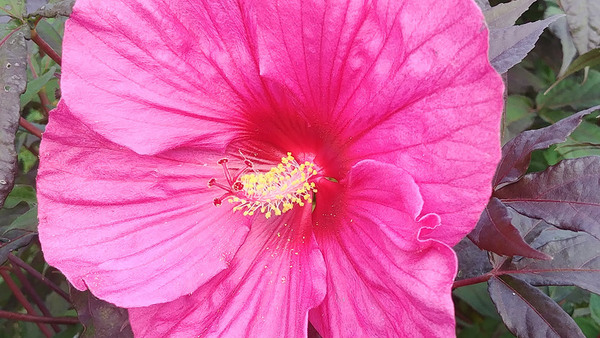
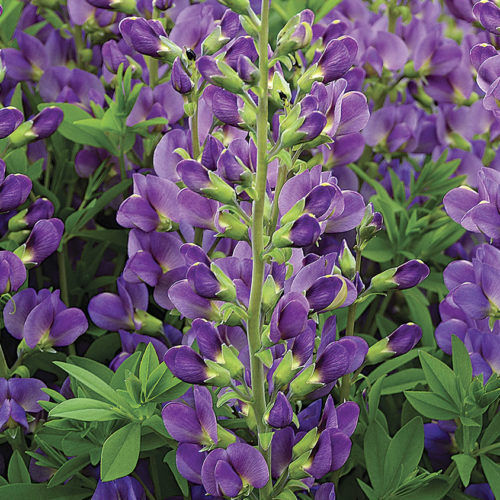
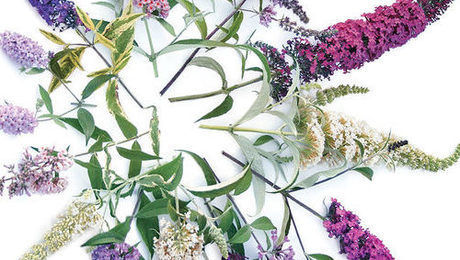
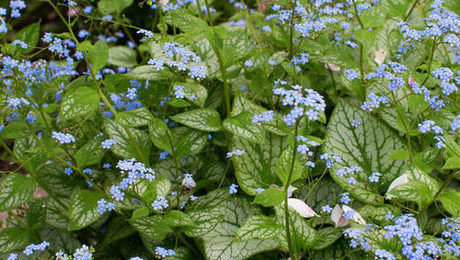


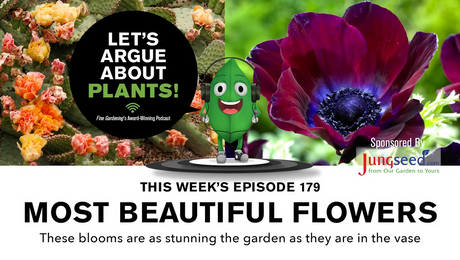










Comments
Very nice article online here thanks a lot for this how to get free robux no human verification it is the great enjoymebts to need you play it.
Log in or create an account to post a comment.
Sign up Log in